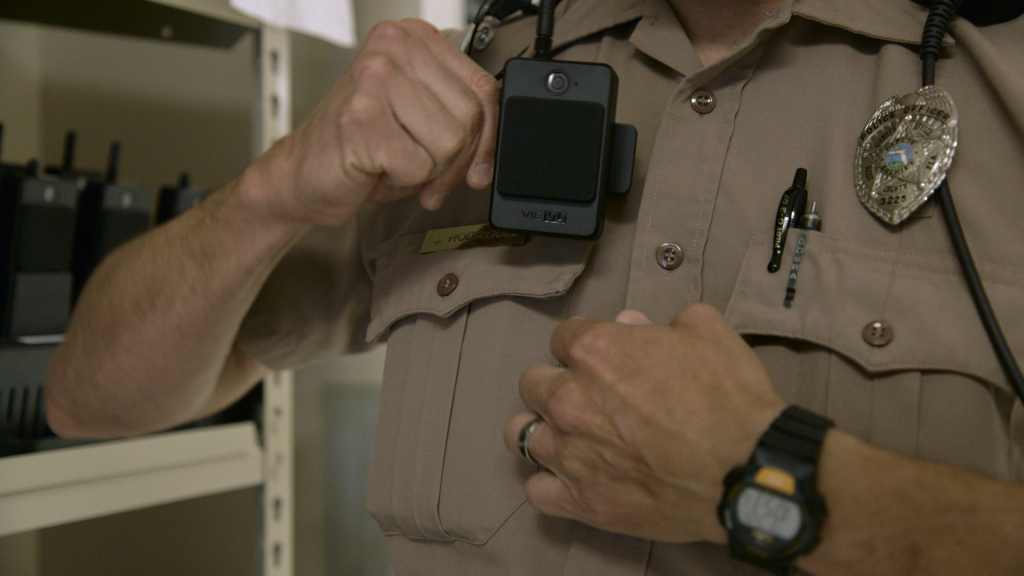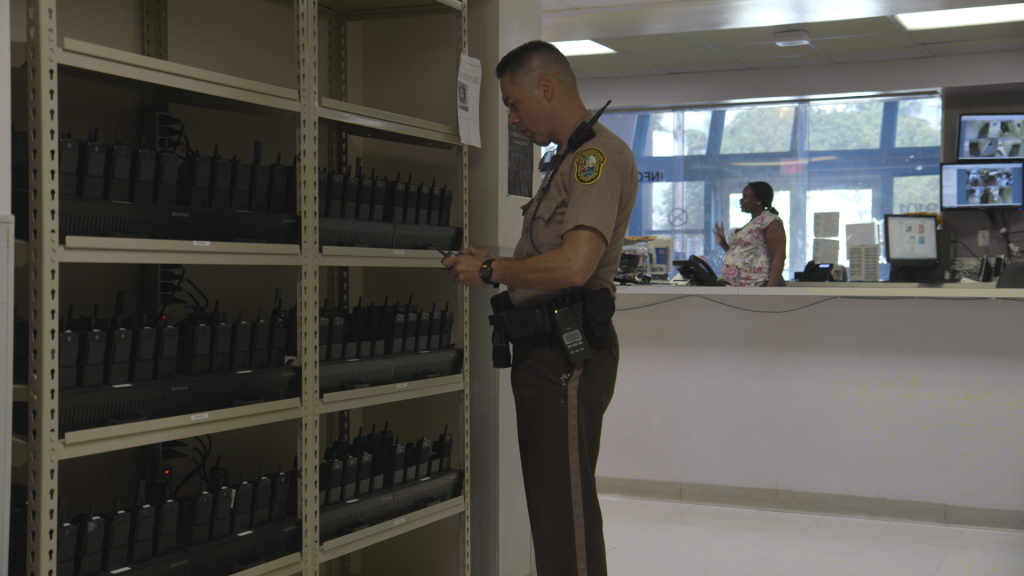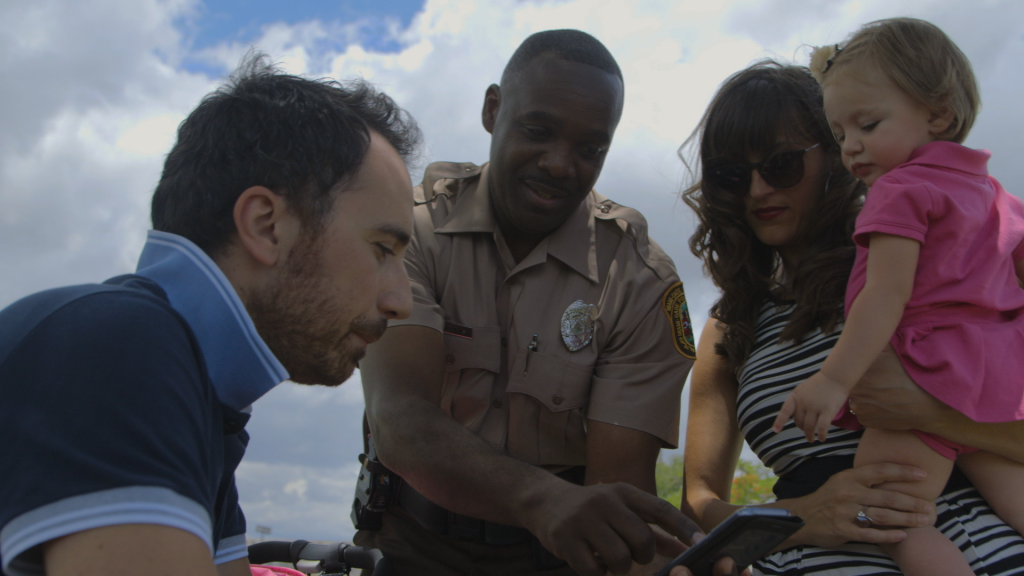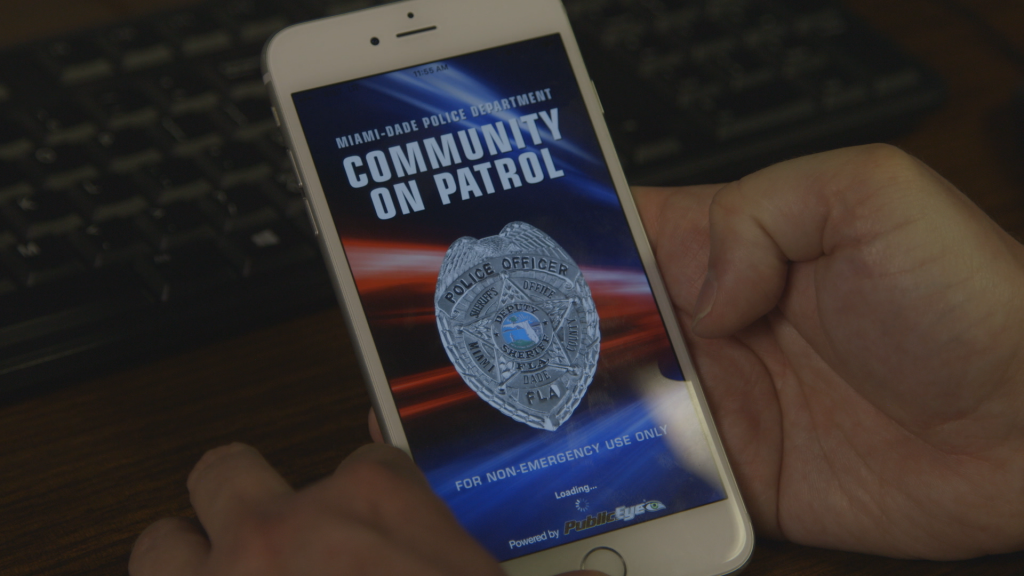Miami-Dade County embraces technology to build community and make policing more transparent
Across the country, police departments and the citizens they serve are looking for better ways to communicate and work together, and many of those departments — including Miami-Dade, the largest police department in the southeastern United States — are turning to technology to build stronger relationships. In fact, last year, President Obama’s Task Force on 21st Century Policing and the White House Police Data Initiative called on law enforcement to better use data and technology to accelerate progress around transparency, accountability and public trust.
Miami-Dade was ahead of this curve. Driven by a desire to foster trust with its diverse community, the police department embarked on an ambitious initiative to transform its operations. It launched two new solutions: VIEVU body-worn cameras for officers, and a new Community on Patrol (COP) app, both powered by cloud technology from Microsoft. By collecting tips from citizens, and providing better documentation of interactions and evidence that might later lead to convictions, these solutions help the police department better engage with the public, and secure the community.
Cops, cameras and the cloud: Building trust and transparency
“Body-worn cameras have become the new norm in policing,” says Juan J. Perez, director of the Miami-Dade Police Department. “Citizens now expect video documentation of most situations where police officers are involved, and body cameras help maintain an objective level of transparency that benefits the officers, suspects, witnesses and victims in a potential crime situation.”
But a camera worn by a police officer generates between 1 and 6 gigabytes of data per shift, per day, and that requires a significant amount of storage and a secure method of accessing, analyzing and managing the data after it’s been captured. Handling this much information can be a challenge for police departments with limited personnel and IT resources — and that’s where cloud technology comes in.
“We wanted to be at the forefront of technology to be able to capture evidence that couldn’t be gleaned another way,” says Perez. “But we also knew we needed to approach the implementation of body-worn cameras thoughtfully to ensure the most positive impact for everyone involved.”
They sought a solution that would offer a high degree of flexibility and would be easy to deploy, while also meeting the department’s security standards. Microsoft Azure Government, a government-only, cloud-based solution, fit the bill.
This month, Miami-Dade County will pass the 1,000 mark in its total deployment of up to 1,500 cloud-based VIEVU body-worn cameras, which clip onto the front of the officer’s uniform and are activated each time an officer interacts with a member of the community. Footage from the cameras is stored in the cloud computing system, which allows the police department to capture, analyze and archive data more efficiently. That information can then be used for new and ongoing investigations, and as evidence in court.
Gus Duarte, a captain in the Miami-Dade Police Department who oversees its Body Worn Camera Program, says the public has responded positively to the department’s use of body cameras, but initially some officers weren’t quite as enthusiastic. “At the start of our deployment, there were a few officers who did not like the idea of having a camera on them,” he says. “However, as they get more used to it and realize the positives of having the camera, they are embracing the idea.”
“Body-worn cameras, I think, bring a level of transparency and accountability that the department is seeking,” says Miami-Dade police officer Jason Rodriguez. “And I think it gives the citizens peace of mind that their interactions with us are being documented.”
The cameras have provided valuable evidence when charges are made, but the benefits can also be more subtle. When people realize a camera is recording their interaction, sometimes their behavior changes, says Duarte. And that can defuse what might otherwise have become a tense situation.
The COP app puts the community on patrol
Information is the lifeblood of policing, and much of that information comes from engaged citizens who are on the streets every day. To collect that vital information, the Miami-Dade Police Department created its Citizens On Patrol (COP) app to encourage the county’s 2.7 million residents to be their eyes and ears. They wanted to use the power of 21st century tools — with the ease and speed of social sharing — to strengthen the bond with citizens and empower those citizens to help create a safer community.
The COP app lets residents securely and anonymously report tips and crimes in progress, using photos, videos and notes captured on their smartphones. This information is then transferred to the Real-Time Crime Center, where officers monitor, collect and analyze tips 24 hours a day.
Officers vet the information they receive and allocate resources to respond to the reported issues as needed. The app also serves up one-stop access to all Miami-Dade Police Department links, even social media handles.
“The COP app is crucial in preventing crime,” says Carmen Caldwell from the Citizens’ Crime Watch of Miami-Dade County. “The police officer cannot be everywhere. A police officer doesn’t know the neighborhood like a person who lives in the neighborhood. So the residents become the eyes and ears of law enforcement. And when you get those two working together you can prevent, I would say, 70 percent of the crime that is happening in the area.”
By helping the police be more responsive, the COP app is forging better relationships with the community. When police follow through on the tips they receive, it boosts trust and increases people’s willingness to report crimes, testify in court and contribute street-level intelligence — all of which helps the police do their jobs better.
In the first five months the app has been available, more than 2,300 people have downloaded it, with more new users downloading the app each month. So far, 118 tips have been submitted. These citizen tips have resulted in the closure of six incidents. In one case, for example, a citizen tip through the COP app reported that a suspicious individual was “possibly casing” an area for a potential crime. A police officer was immediately dispatched to the scene, and his subsequent investigation led to the arrest of the suspicious individual.
“We’re using these solutions to enhance our relationships with the citizens we serve,” says Perez. “Both the COP app and the cloud-based body-worn cameras enable us to engage with people in a more transparent way. They are helping us build trust while also supporting the work we do in preventing and solving crime.”
As more and more departments evaluate their technology needs, they need to carefully evaluate whether their cloud provider meets proper standards for security. One top concern for public safety agencies across the U.S. is whether a cloud platform meets the applicable requirements of the FBI’s Criminal Justice Information Services (CJIS) Security Policy, which enables departments to access, transmit or store any of the FBI’s criminal justice information.
Since access to CJIS data is crucial in supporting investigations and solving crimes — both in local communities and across the country — the ability to support those standards is a key reason why many law enforcement agencies choose Microsoft Azure Government.
To learn more about Microsoft’s differentiated ability to meet and exceed the security and compliance needs of customers, as evidenced by its CJIS agreements with 23 U.S. states, visit the Microsoft Government blog. For more about why Microsoft is the ideal partner for powering the mission-critical workloads of government customers, check out the Azure blog.











